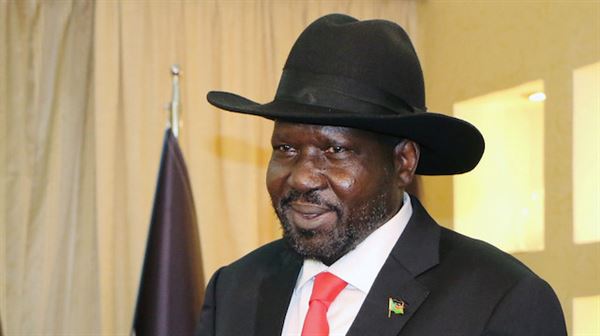South Sudan is barreling towards a crisis as it nears a deadline to form a transitional unity government, a Brussels-based think tank warned on Monday
South Sudan is barreling towards a crisis as it nears a deadline to form a transitional unity government, a Brussels-based think tank warned on Monday.
According to the International Crisis Group (ICG), the risk of instability in the country is very high, regardless of whether a government is formed.
The transitional government, a power-sharing arrangement between President Salva Kiir’s government and opposition groups, is set for Nov. 12.
While Kiir is ready to form the government, opposition leader Riek Machar is demanding a delay, citing unmet pre-transitional tasks including the unification of armed forces.
“Even if the two leaders agree to share power, disputes over security arrangements and state boundaries would poison the new administration, potentially leading to its collapse,” the ICG said in a report.
“Either scenario risks reigniting a war that has killed, by some estimates, several hundred thousands of people and displaced one third of the population,” it added.
The group urged the Intergovernmental Authority for Development, an East African regional body, to “push the parties to agree on state boundaries and consensus on a new, incremental timeline for unification of their forces into a national army.”
They warned that if the country backslides into crisis, its neighbors would also suffer, with refugee influxes and economic disruption, including a loss of oil resources from South Sudan and proxy conflicts straddling their borders.
Leaders in the region should urge Kiir to form a government only with Machar’s agreement, and press both parties to reach an accord on security arrangements and state boundaries, said the group.
“If, amid such tensions, the two sides end up sharing control of the capital, as in 2016, then rising political temperatures along the path to elections scheduled for 2022 could spark new fighting,” it said.
“This scenario also closely resembles the situation in 2013, when the power struggle inside the ruling party led to a firefight between Kiir’s and Machar’s loyalists in an integrated presidential guard unit, the first skirmish of the six-year civil war,” the ICG added.
South Sudan slid into crisis when President Kiir sacked Machar as vice president in December 2013 on suspicion of plotting a coup, followed by a protracted civil war that claimed the lives of tens of thousands and forced 4 million people to flee their homes.
